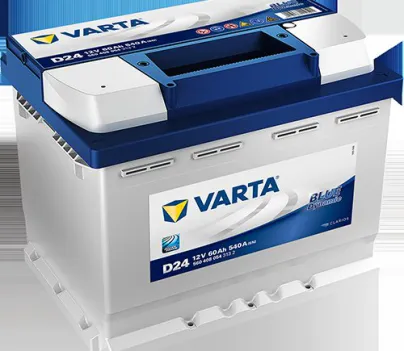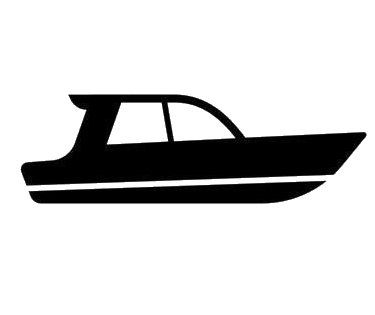
Operation and warranty of lead-acid starter (non-traction) batteries.
If your
vehicle is equipped with GEL-type batteries (not filled with liquid
electrolyte), they will not need to be topped up with electrolyte, but the
operating conditions remain the same.
ATTENTION:
Read the operating instructions carefully. Practice shows that in the event of
a factory defect, the malfunction becomes apparent within 2-3 months of battery
use. 99% of battery failures occur due to incorrect use or malfunctions of the
vehicle's electrical equipment.
When
purchasing a battery, make sure that the battery is fully charged and meets the
technical requirements - voltage not lower than 12.5 V. If lower, return it
immediately to the seller. Check whether the factory recommendations allow
installing the purchased battery in your vehicle.
By
purchasing a battery, the buyer confirms that he is familiar with the warranty
conditions and undertakes to comply with them.
WARRANTY
TERMS
Battery
warranty period 6 – 24 months from the date of sale.
Batteries
for motorcycles, ATVs, snowmobiles and similar vehicles, taxis, special service
vehicles are provided with a 6-month warranty.
Batteries
for trucks, agricultural machinery, boats (traction batteries) are provided
with a 12-month warranty.
Batteries
for highway tractors (cab with sleeping place) are provided with a 18-month
warranty.
The
warranty is valid only for defects caused by poor-quality materials or
manufacturing defects.
The
warranty is invalid when:
1. The
battery was used or stored without following the instructions for use.
2. The
vehicle's electrical equipment is malfunctioning or does not meet the
requirements:
a)
current leakage, after switching off the "ignition", exceeds 0.1 A;
b)
charging voltage less than 13.8V or more than 14.6V; for 6V systems – less than
6.9V or more than 7.3V; for 24V systems – less than 27.6V or more than 29.2V.
3. The
vehicle was left unused with the alarm on (the alarm discharges the battery in
5-10 days).
4. The
battery was used without a DC charger or generator.
5. The
battery case or other elements are broken or otherwise mechanically damaged.
6. The
battery was used in a vehicle not in accordance with the manufacturer's
recommendations.
7. The
warranty is not valid for frozen batteries (a discharged battery can freeze at
- 10°C)
8. The
warranty is not valid for completely discharged batteries, when the voltage is
less than 10.5 V and the electrolyte density is less than 1.10 kg/l.
9. One
12 V battery is purchased for a vehicle with a 24 V electrical system or one 6
V battery for a 12 V system.
10. Any
substances except distilled water were poured into the battery.
11. For
exploded batteries (explosion occurs only due to an external spark or fire).
12. The
battery is used without being securely fastened.
13. The
battery has worn out due to intensive or improper operation and maintenance
(signs: broken active plate mass, black or brown electrolyte).
14. Due
to long-term discharge, lead sulfate has irreversibly formed (symptoms: white
crystals on the battery plates).
15. Due
to too high a charging voltage, the electrolyte has turned brown or evaporated.
16.
Additional audio, video, communication, load-lifting and other equipment
installed by a vehicle manufacturer is used (the warranty is valid only with
written confirmation from the manufacturer and installer of the additional
equipment that all necessary changes have been made to the vehicle, e.g. a more
powerful generator, electrical installation, additional relays, etc. have been
installed, and the type and characteristics of the battery are specified for
the reliable operation of this equipment).
17. When
the battery is good, but the charge level indicator "green eye" is
not working properly.
In the
event of claims, the vehicle in which the defective battery was installed must
be delivered for a technical inspection of the electrical equipment. If the
cause of the unsatisfactory battery performance cannot be immediately
determined, the battery is left with the seller for 10 working days to
determine the fault and report the findings. The seller is not obliged to
provide another battery for temporary use.
If a
manufacturing defect is detected, the warranty battery is replaced with another
new battery of the same or similar type, which is granted the remaining unused
warranty period. During the warranty period, the seller performs battery
maintenance and inspection work free of charge only if a manufacturing defect
is recognized and the battery is replaced with a new one, in other cases the
buyer pays for the services according to the price list of services valid at
that time. The buyer pays for the costs of delivering the battery and the
vehicle to/from the warranty service location(s).
If the buyer suffers material losses due to a defective battery (e.g., being late for the plane, transporting the vehicle to the repair location, emergency).

 Electric trike mobility scooters, electric four-wheel mobility scooters
Electric trike mobility scooters, electric four-wheel mobility scooters  Electric scooters
Electric scooters  Gas scooters, mopeds, motorcycles
Gas scooters, mopeds, motorcycles  Electric scooters
Electric scooters  Motorcycles
Motorcycles  Cross motorcycles for kids
Cross motorcycles for kids  Cross motorcycles
Cross motorcycles  Street motorcycles
Street motorcycles  Petrol ATV's
Petrol ATV's  Electric ATV's
Electric ATV's  ATV's for kids
ATV's for kids  Fuel and electric kick scooters
Fuel and electric kick scooters  Wheelchairs, trailers
Wheelchairs, trailers  Electric wheelchairs
Electric wheelchairs  Batteries
Batteries  Cooling system
Cooling system  Petrol engines
Petrol engines  Exhaust system
Exhaust system  Electrical parts
Electrical parts  Electric motors
Electric motors  Electric bicycle parts
Electric bicycle parts  Electric ATV parts
Electric ATV parts  Fuel system
Fuel system  Bearings for motorcycles
Bearings for motorcycles  Light bulbs
Light bulbs  Stickers
Stickers  Motorized bicycle parts
Motorized bicycle parts  Motorized bicycle engines 2T and 4T
Motorized bicycle engines 2T and 4T  Motorcycle oil seals
Motorcycle oil seals  Wheelchair trailer parts
Wheelchair trailer parts  Tyres
Tyres  Chargers
Chargers  Kick scooter parts
Kick scooter parts  Plastic covers
Plastic covers  Levers
Levers  Speedometer drive gear
Speedometer drive gear  Brakes
Brakes  Chassis, body
Chassis, body  Tuning
Tuning  Fasteners and screws
Fasteners and screws  Engine parts
Engine parts  Drive gear parts
Drive gear parts  Wind deflectors
Wind deflectors  Lights
Lights  Body repair materials
Body repair materials  Lubricants
Lubricants  Engine performance improvement, recovery additives
Engine performance improvement, recovery additives  Liquids
Liquids  Adhesives, sealants
Adhesives, sealants  Apsaugos priemonės
Apsaugos priemonės  COVID 19 products
COVID 19 products  Sound insulation goods
Sound insulation goods  Maintenance goods
Maintenance goods  Painting supplies
Painting supplies  The smells
The smells  Sandpaper
Sandpaper  Goggles
Goggles  Accessories
Accessories  Boots
Boots  Pants
Pants  Shirts
Shirts  Gloves
Gloves  Moto jackets
Moto jackets  Helmets
Helmets  Helmet accessories
Helmet accessories  Gifts for motorcyclists
Gifts for motorcyclists  Cargo fastening net
Cargo fastening net  Fuel tank trim
Fuel tank trim  Vest
Vest  Reflectors
Reflectors  Motorcycle theft protection
Motorcycle theft protection  Service hour meters
Service hour meters  Moto backpacks
Moto backpacks  Moto storage boxes and bags
Moto storage boxes and bags  Motorcycle communication equipment and accessories
Motorcycle communication equipment and accessories  License plate holders
License plate holders  Backrests for motorcyclists
Backrests for motorcyclists  Moto keychains
Moto keychains  Camping equipment
Camping equipment  Pulling winches
Pulling winches  Bike Covers
Bike Covers  Valve caps
Valve caps  Flashlights
Flashlights  Work gloves
Work gloves  Electric tools
Electric tools  Moto lifts and ramps
Moto lifts and ramps  Knives
Knives  Hand tools
Hand tools  Garden machinery parts
Garden machinery parts  Trimmer parts
Trimmer parts  Chain saw parts
Chain saw parts  Carburetors
Carburetors  Carts
Carts  Car seats for children's
Car seats for children's  Bicycle racks
Bicycle racks  Repair kits
Repair kits  Tire winter accessories
Tire winter accessories  Paint and sticker remover
Paint and sticker remover  Polishing discs
Polishing discs  Polishing paste
Polishing paste  Sandpaper
Sandpaper  Kids car
Kids car  Boat engine parts
Boat engine parts  Spare parts
Spare parts